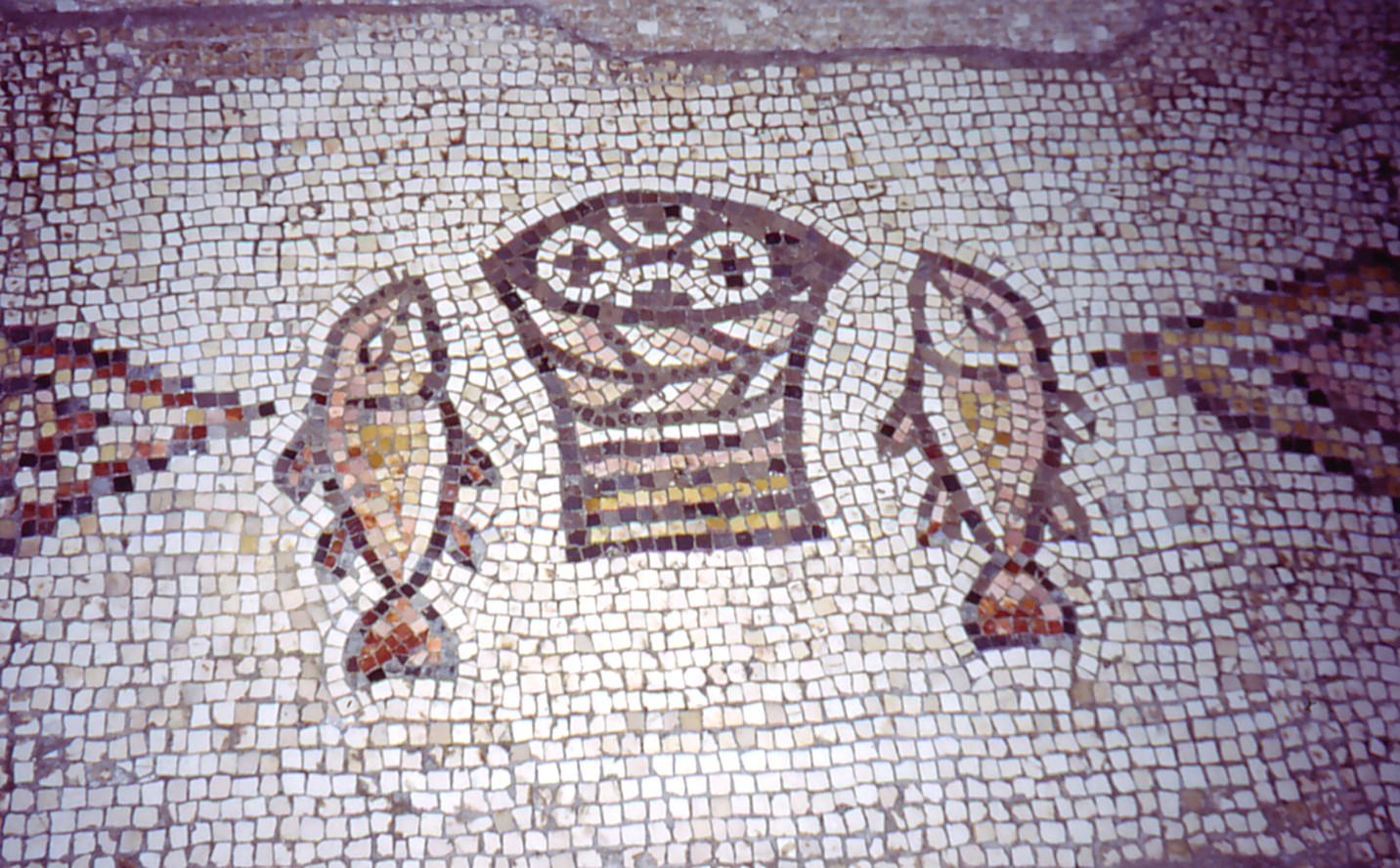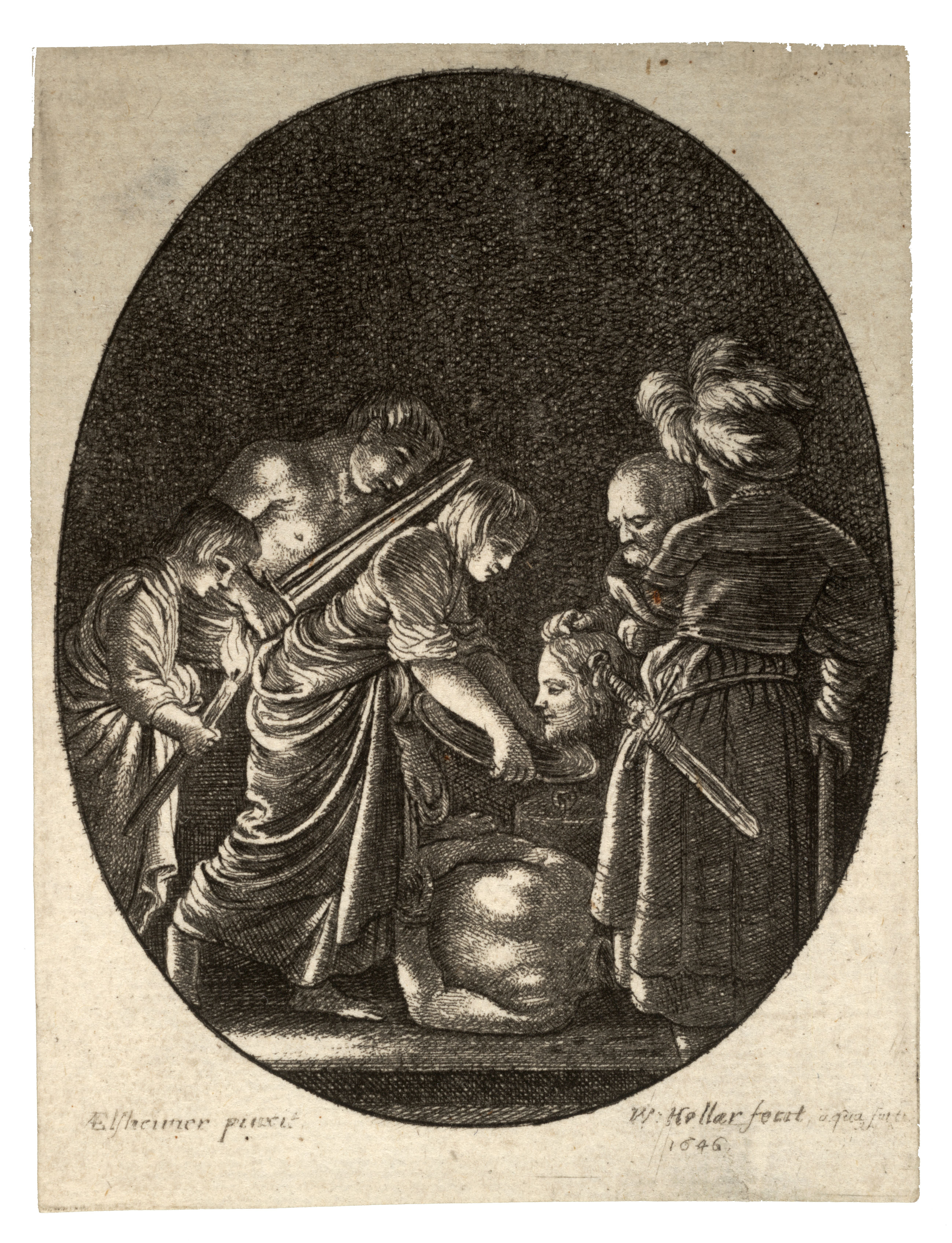Lectionary texts for Sunday, August 5th, include 2 Sam 11:26-12:13a & John 6:24-35.
In our Old Testament reading, the life and times of King David continues. Last Sunday we learned of his infidelity as well as the death of an innocent man because of David's sin. After reading the text, consider the following:
- What is David's sin?
- Who comes calling with a word from God?
- You may notice that the reading ends at verse 13a ("a" meaning only the first part of verse 13). Why do you think the rest of the verse plus verses 14 and 15 are omitted from the reading?
[NRSV, New Revised Standard Version]
So when the crowd saw that neither Jesus nor his disciples were there, they themselves got into the boats and went to Capernaum looking for Jesus. When they found him on the other side of the sea, they said to him, “Rabbi, when did you come here?” Jesus answered them, “Very truly, I tell you, you are looking for me, not because you saw signs, but because you ate your fill of the loaves. Do not work for the food that perishes, but for the food that endures for eternal life, which the Son of Man will give you. For it is on him that God the Father has set his seal.”Then they said to him, “What must we do to perform the works of God?” Jesus answered them, “This is the work of God, that you believe in him whom he has sent.” So they said to him, “What sign are you going to give us then, so that we may see it and believe you? What work are you performing? Our ancestors ate the manna in the wilderness; as it is written, ‘He gave them bread from heaven to eat.’” Then Jesus said to them, “Very truly, I tell you, it was not Moses who gave you the bread from heaven, but it is my Father who gives you the true bread from heaven. For the bread of God is that which comes down from heaven and gives life to the world.” They said to him, “Sir, give us this bread always.” Jesus said to them, “I am the bread of life. Whoever comes to me will never be hungry, and whoever believes in me will never be thirsty."
[CEB, Common English Bible]
When the crowd saw that neither Jesus nor his disciples
were there, they got into the boats and came to Capernaum looking for Jesus.
When they found him on the
other side of the lake, they asked him, “Rabbi, when did you get here?” Jesus replied, “I assure you that you are looking for me not because you saw
miraculous signs but because you ate all the food you wanted. Don’t work for the food that doesn’t last but
for the food that endures for eternal life, which the Human One will give you.
God the Father has confirmed him as his agent to give life.” They asked, “What must we do in order to accomplish what
God requires?” Jesus replied, “This is what God requires, that you believe in him whom God sent.”
They asked, “What miraculous sign will you do, that
we can see and believe you? What will you do? Our ancestors ate manna in the
wilderness, just as it is written, He gave them bread from heaven to eat.
”Jesus told them, “I assure you, it wasn’t Moses who gave the bread from heaven to you,
but my Father gives you the true bread from heaven. The bread of God is the one who comes
down from heaven and gives life to the world.”They said, “Sir, give us this bread all the time!” Jesus
replied, “I am the bread of life. Whoever comes to me
will never go hungry, and whoever believes in me will never be thirsty."
[The Message]
The next day the
crowd that was left behind realized that there had been only one boat, and that
Jesus had not gotten into it with his disciples. They had seen them go off
without him. By now boats from Tiberias had pulled up near where they had eaten
the bread blessed by the Master. So when the crowd realized he was gone and
wasn't coming back, they piled into the Tiberias boats and headed for
Capernaum, looking for Jesus. When they found him back across the sea, they
said, "Rabbi, when did you get here?" Jesus answered, "You've
come looking for me not because you saw God in my actions but because I fed
you, filled your stomachs—and for free. "Don't waste your energy striving
for perishable food like that. Work for the food that sticks with you, food
that nourishes your lasting life, food the Son of Man provides. He and what he
does are guaranteed by God the Father to last." To that they said,
"Well, what do we do then to get in on God's works?" Jesus said,
"Throw your lot in with the One that God has sent. That kind of a
commitment gets you in on God's works." They waffled: "Why don't you
give us a clue about who you are, just a hint of what's going on? When we see
what's up, we'll commit ourselves. Show us what you can do. Moses fed our
ancestors with bread in the desert. It says so in the Scriptures: 'He gave them
bread from heaven to eat.'" Jesus responded, "The real significance
of that Scripture is not that Moses gave you bread from heaven but that my
Father is right now offering you bread from heaven, the real bread. The Bread
of God came down out of heaven and is giving life to the world." They
jumped at that: "Master, give us this bread, now and forever!" Jesus
said, "I am the Bread of Life. The person who aligns with me hungers no
more and thirsts no more, ever."
As always, I look forward to seeing you in worship on Sunday. May God's blessings rain down upon you this week.
Shalom,
Glenda




